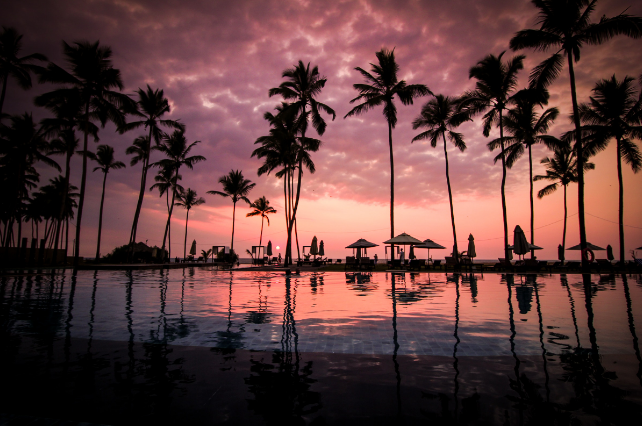As tropical islands continue to attract large numbers of tourists with their stunning beauty, the need to protect these pristine havens has become even more important. With global warming and environmental neglect posing threats to these destinations, many international tourism operators are taking action to maintain the sustainability of tropical island destinations through sustainability programs.

In order to maintain the sustainable development of tropical island destinations, the tourism industry is actively contributing to environmental protection. For example, the Prince Waikiki Hotel in Oahu, Hawaii, has taken a proactive approach to sustainability by establishing a vegetable plantation on its roof to provide home-grown ingredients for the hotel restaurant, creating a unique experience from the garden to the table. In addition to reducing its carbon footprint by sourcing nearly 100% local ingredients and using home-grown ingredients, the hotel has partnered with local nonprofits to reduce food waste and support the local community by collecting excess ingredients. Twice a week, the nonprofit travels to the hotel to collect unused food and deliver it to those in need. This not only reduces poverty for local people, but also prevents the release of harmful greenhouse gases when food decomposes in landfills. These two initiatives demonstrate the significant impact of the hospitality sector in promoting environmental practices.
In addition, there are grassroots non-profit organizations working to protect the island's ecosystem, such as through various cleanup and restoration activities, attracting volunteers and teaching environmental awareness to children. The organization's Earth Day Cleanup Event Festival invites the public to take an active part in environmental conservation at Beach Park while enjoying live music, workshops, and morning yoga classes, and also offers businesses the opportunity for private and corporate cleanup events that allow participants to get involved and make a positive impact while enjoying the local sun.
Jamaica's commitment to sustainable development has gained international recognition. The United Nations has worked with Jamaica to develop the Jamaica National Plan of Implementation, which includes 17 Sustainable Development Goals (SDGs) to address the challenges of poverty, hunger, sustainable consumption and climate action. The Montego Bay Convention Centre (MBCC), an example of a sustainable event facility in Jamaica, has implemented a variety of sustainability initiatives, including the production of organic fertilizers from on-site compost, the use of 100% recycled paper products, and the use of an electronic platform to reduce paper usage. In addition, the Montego Bay Convention Center has passed a third-party audit to accurately assess its energy saving potential, and has adopted energy-efficient lighting, water-saving devices in water-consuming facilities such as restrooms, and a comprehensive recycling program for waste light bulbs, batteries, and organic brochures.
Alaska Airlines is also working with the Surfrider Foundation to protect the oceans and beaches of Hawaii, California and the Pacific Northwest, setting goals to reduce waste, eliminate single-use plastics, and engage in habitat restoration projects to balance its water use. Alaska Airlines plans to replace the top five items that generate the most waste in the airline's in-flight service by 2025, balance the airline's water footprint by participating in habitat restoration projects, and reduce significant amounts of plastic waste each year by eliminating items such as plastic bottles, cups, straws, stirrers, and citrus flakes.
These examples of collective efforts show what tourism can do for environmental protection. From sustainable gardens to food recycling programs to beach cleaning and reducing plastic waste, the hotel and tourism industries can work together to protect island destinations and leave a legacy for future generations.














